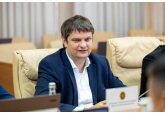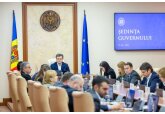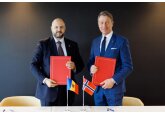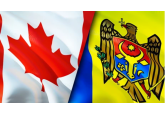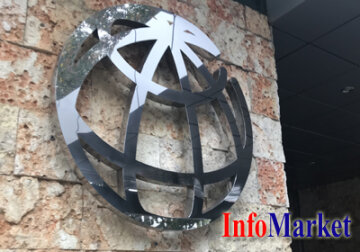
The World Bank will provide $40 million to Moldova under a new program to help refugees and households and support its reform agenda.
Specifically, the World Bank Group's Board of Executive Directors approved the Growth and Resilience Development Policy Operation (DPO), which will support the Moldovan government's efforts to assist refugees and households in the aftermath of the war in Ukraine, while maintaining the momentum of the long-term program of economic integration with the European Union and increasing resilience to climate change. As noted in the World Bank statement, the $40 million budget support operation builds on the previous Moldova Emergency Response, Resilience, and Competitiveness DPO and is consistent with the new World Bank Partnership Framework for Moldova. The operation is part of the World Bank's broader efforts to support the government's response to the energy and refugee crises while building resilience to future shocks. WB representatives point out that against the backdrop of the war in Ukraine, Moldova’s economy and public finances have come under pressure from the energy crisis and the refugee crisis, which has led to a decrease in household incomes and increased risks that continue to put pressure on private spending and investor confidence. After a recession in 2022 and a slow recovery in 2023, Moldova is projected to experience a moderate economic recovery in 2024, supported by a recovery in household incomes. The DPO is committed to supporting the government's short-term goals to continue to provide assistance to the most vulnerable, including by consolidating the Ajutor Social welfare program, which supports the participation of refugees and women in the labor market, and by providing assistance to vulnerable families and those hosting refugees to cover high energy costs. “Moldova is facing unprecedented challenges due to external shocks. The DPO will address immediate needs, such as ongoing support for the most vulnerable to mitigate the impact of multiple crises, and will also contribute to the broader goal of promoting a more competitive, sustainable economy and efficient private sector,” said the World Bank Country Manager for Moldova Inguna Dobraja. According to her, in addition, the DPO will support Moldova's long-term goals of creating a more competitive and sustainable economy based on the development of the private sector. The operation supports measures to strengthen the regulatory framework in the field of competition and state aid, to improve governance and competition in the energy sector, and to strengthen the bank deposit guarantee system. The DPO will also help improve energy efficiency, promote renewable energy and sustainable forest management, including for carbon sequestration and increasing the resilience of agricultural lands, thereby contributing to climate change mitigation and adaptation efforts. This operation is part of a larger financial assistance package supported by the IMF, EU and World Bank. Parallel funding for this operation is expected from the Canadian Foreign Ministry and the Japan International Cooperation Agency. The operation will receive a $10.5 million grant from the Moldova Growth, Resilience and Opportunity for Well-Being (M-GROW) program. The operation will also receive a $5 million grant from the Global Concessional Financing Facility (GCFF) to support authorities' efforts to combat the refugee crisis. To date, GCFF has awarded $49.24 million in grants to Moldova, enabling an additional $409.24 million in concessional loans from the World Bank to support host communities and refugees. Since Moldova joined the World Bank in 1992, more than $2.1 billion has been allocated to implement more than 70 operations. The World Bank's portfolio currently includes 14 active projects with a total commitment of $849 million and includes regulatory reform and business development, modernization public services, tax administration, land registration, education, roads, agriculture, water supply, energy, health and social sector, including urgent response to COVID-19, etc. // 17.06.2024 - InfoMarket.


